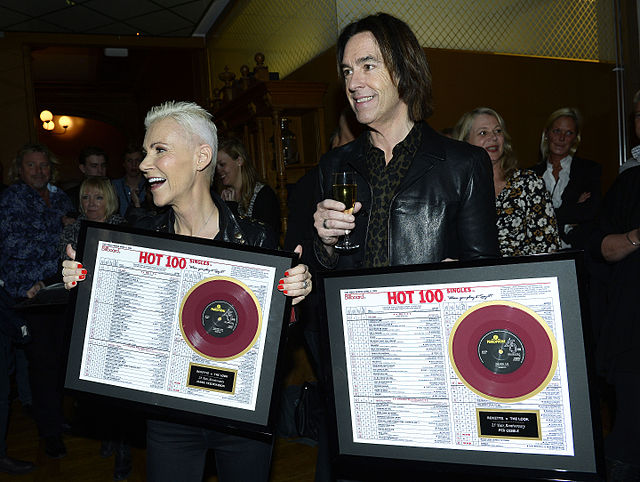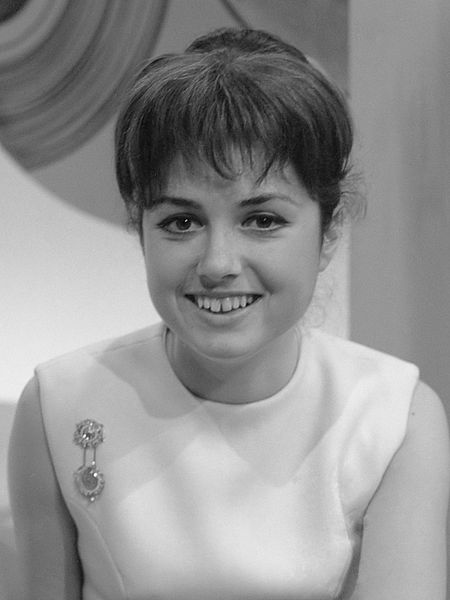Swedish popular music, or shortly Swedish pop music, refers to music that has swept the Swedish mainstream at any given point in recent times. After World War II, Swedish pop music was heavily influenced by American jazz, and then by rock-and-roll from the U.S. and the U.K. in the 1950s and 1960s, before developing into dansband music. Since the 1970s, Swedish pop music has come to international prominence with bands singing in English, ranking high on the British, New Zealand, American, and Australian charts and making Sweden one of the world's top exporter of popular music by gross domestic product.
Tages (pictured here in 1965) are widely considered one of the best Swedish bands of the 1960s.
Kikki Danielsson broke through with Wizex in the 1970s.
Between 1989 and 1991, Roxette had four number-one hits on the Billboard Hot 100 chart.
The tremendous impact of the Cheiron Studios on Swedish popular music is hard to overstate.
Eurovision Song Contest 1974
The Eurovision Song Contest 1974 was the 19th edition of the Eurovision Song Contest, held on 6 April 1974 in the Dome in Brighton, United Kingdom. Organised by the European Broadcasting Union (EBU) and host broadcaster the British Broadcasting Corporation (BBC), and presented by Katie Boyle, this was the fifth time that the United Kingdom had staged the contest.
The Concert Hall of the Dome, Brighton – host venue of the 1974 contest
Gigliola Cinquetti (pictured in 1966) had previously won the contest in 1964 for Italy, and competed again at this year's event.
Prior to the event, Dutch duo Mouth and MacNeal were considered among the favourites to win the contest.
Image: Olivia Newton John (1974)








